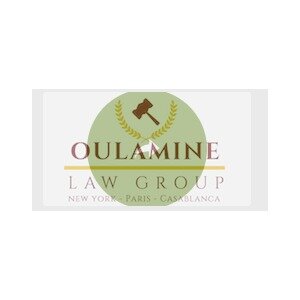Best Citizenship Lawyers in Casablanca
Share your needs with us, get contacted by law firms.
Free. Takes 2 min.
List of the best lawyers in Casablanca, Morocco
About Citizenship Law in Casablanca, Morocco
The citizenship law of Morocco, which also applies to its largest city, Casablanca, is based on the principles of jus sanguinis (right of blood) rather than jus soli (right of soil). Essentially, persons of Moroccan descent, regardless of birthplace, are considered Moroccan citizens. Additionally, foreign nationals can acquire Moroccan citizenship through a naturalization process, which involves lengthy residency, proof of integration into Moroccan society, and other steps. Married individuals can also attain citizenship under special conditions. However, dual citizenship is permitted in Morocco.
Why You May Need a Lawyer
Securing citizenship in a new country can often be a complicated and lengthy process. In particular, the naturalization process in Morocco involves various legal procedures, document preparation and verification, which can be overwhelming to a lay person. Additionally, special circumstances, like marrying a Moroccan citizen, having Moroccan parents, or being a minor may require in-depth understanding of the law or handling disputes, which a legal adviser can efficiently navigate through. Hence, legal advice becomes invaluable to streamline the process, prevent mistakes, and ensure that all procedures are handled correctly.
Local Laws Overview
Some of the key aspects of local laws in Morocco relevant to citizenship include right by descent, which means anybody with Moroccan parents can apply for citizenship, regardless of where they were born, and right by marriage, which applies to foreign spouses of Moroccan citizens after a certain period of marriage. Naturalization is applicable for those who have legally resided in Morocco for at least five continuous years. However, it's important to note that terms and criteria can change based on policy shifts and it's advisable to consult with a lawyer to fully understand current local immigration laws and your rights.
Frequently Asked Questions
1. Can I have dual citizenship in Morocco?
Yes, dual citizenship is permitted in Morocco.
2. Can I obtain citizenship through marriage?
Yes, foreign spouses of Moroccan citizens can apply for citizenship after being married for a certain period.
3. What is the naturalization process in Morocco?
Naturalization in Morocco requires a lawful and continuous residence for a period of five years, along with being of good conduct and reputation and not having been convicted of any crime or offense punishable by Moroccan law.
4. Can I apply for citizenship if I was born in Morocco but my parents are not Moroccan?
Citizenship in Morocco is mainly based on jus sanguinis (right of blood) rather than jus soli (right of soil). However, there may be exceptions so it's advisable to consult with a legal advisor.
5. Are children of Moroccan residents automatically citizens?
Children born to Moroccan parents, regardless of where they were born, are typically considered as Moroccan citizens. However, legal advice is recommended for any specifics.
6. Do I need to renounce my original citizenship to become a Moroccan citizen?
No, Moroccan law permits dual citizenship.
7. Do I need to speak Arabic to be a citizen?
The naturalization process in Morocco includes the integration into the Moroccan society, which likely includes some proficiency in Arabic.
8. How long does the naturalization process take?
The duration can vary significantly based on individual circumstances and factors such as background checks and document verification.
9. Is citizenship in Morocco extended to grandparents and ancestors?
Typically, Moroccan citizenship rights are extended up until the second generation, i.e., parents. The application of jus sanguinis rules to grandparents or ancestors beyond that would require legal consultation.
10. Can I still be a Moroccan citizen if I move to a different country?
Yes, Moroccan law allows dual citizenship which means moving to a different country doesn't nullify your Moroccan citizenship, though it's advised to check the laws of the other country in concern.
Additional Resources
Additional resources that might be of assistance include your local Moroccan consulate or embassy, the Moroccan Ministry of Justice, and organizations that aid with immigration issues. Legal professionals specializing in Moroccan immigration law can also provide valuable guidance and advice.
Next Steps
If you require legal assistance, it's advisable to contact a lawyer specializing in Moroccan citizenship law who would be able to guide you through the required processes and procedures based on your individual circumstances. It's important to present all relevant information regarding your case to receive the most accurate advice. Lastly, keeping abreast with the most recent changes in Moroccan law is suggested.
Lawzana helps you find the best lawyers and law firms in Casablanca through a curated and pre-screened list of qualified legal professionals. Our platform offers rankings and detailed profiles of attorneys and law firms, allowing you to compare based on practice areas, including Citizenship, experience, and client feedback.
Each profile includes a description of the firm's areas of practice, client reviews, team members and partners, year of establishment, spoken languages, office locations, contact information, social media presence, and any published articles or resources. Most firms on our platform speak English and are experienced in both local and international legal matters.
Get a quote from top-rated law firms in Casablanca, Morocco — quickly, securely, and without unnecessary hassle.
Disclaimer:
The information provided on this page is for general informational purposes only and does not constitute legal advice. While we strive to ensure the accuracy and relevance of the content, legal information may change over time, and interpretations of the law can vary. You should always consult with a qualified legal professional for advice specific to your situation.
We disclaim all liability for actions taken or not taken based on the content of this page. If you believe any information is incorrect or outdated, please contact us, and we will review and update it where appropriate.











